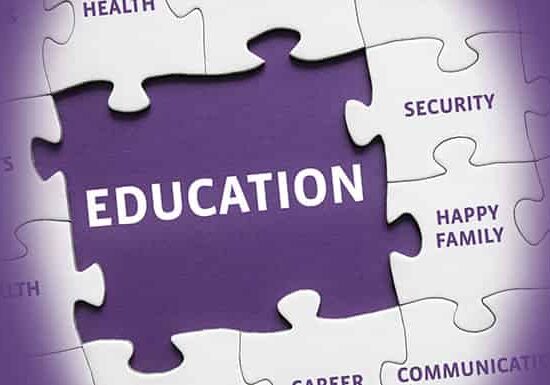10 Benefits of Education That Will Surprise You
Updated: June 4, 2025

The benefits of education are many. Not only will you personally benefit from receiving education when it comes to income, career advancement, skill development, and employment opportunities, but your society and community receive benefits of education as well.
Societies with higher rates of degree completion and levels of education tend to be healthier, have higher rates of economic stability, lower crime, and greater equality. For more surprising benefits of education, read on.
Photo by Pixabay from Pexels
Benefits of Education
Education can profoundly impact individuals and communities. On a personal level, it encourages us to think critically, develop problem-solving skills, and develop lifelong learning habits, transforming us into more capable and reflective people.
Societally, education promotes economic stability, reduces crime, and promotes greater equality. Its transformative power enhances personal growth and societal development, creating healthier, more informed, and cohesive communities.
1. Healthier Lifestyle
Education leads to a healthier lifestyle in various ways. Studies show that people with higher education levels tend to live longer and have lower risks of chronic diseases.
Educated people are more likely to make informed health choices, such as eating a balanced diet, exercising regularly, and avoiding harmful behaviors like smoking and excessive drinking.
They also have better access to healthcare services and are more likely to use preventive measures, such as vaccinations and regular check-ups.
2. Experimentation and Diversity
A personal benefit to getting an education is the opportunity to grow as an individual, experiment with what you are passionate about, and find yourself. You will be exposed to a diverse set of people and ideas which expand the mind.
Connecting Across Borders
The new world of digital education is helping those who get an education to connect across the globe with people from other cultures. Students can collaborate together across borders, increasing the cultural awareness and worldliness of the individuals.
3. Socializing and Networking
Education provides students with the space and the opportunities to meet like-minded individuals, either on a peer or mentor basis. In school, students meet leaders in their field, top professionals, and make contacts through extracurricular activities as well.
4. Pursuing Your Passion
Photo by Burst from Pexels
Education provides you with the opportunity to explore and immerse yourself in subjects you are passionate about. It allows you to dive deep into areas of interest, fostering a deeper understanding and appreciation. For example, if you love music, studying it in an academic setting can give you both practical skills and theoretical knowledge.
It can also help you discover new passions and interests you might not have considered. By exposing you to a broad range of subjects and ideas, education can open up new career paths and personal interests, leading to a more fulfilling life.
5. Personal Development of Skills
Education equips students with a versatile skill set through diverse assignments, discussions, and courses. These experiences encourage critical thinking, effective communication, and time management.
Extracurricular activities further enhance personal skills such as arts, sports, and teamwork, enriching personal life and professional readiness.
As students navigate various educational tasks, they gain knowledge and develop resilience, creativity, and adaptability, essential for personal growth and career success.
6. More Employment
Having a degree significantly enhances your employment opportunities. According to the U.S. Bureau of Labor Statistics, the unemployment rate for individuals with a bachelor’s degree was 2.3% in the third quarter of 2023. This is substantially lower than the overall national unemployment rate.
Additionally, degree holders tend to have access to a wider range of job opportunities, many of which are not available to those without a degree. This increased employability often translates into better job security and career progression.
7. Career Entry and Advancement
Photo by Godisable Jacob from Pexels
College degrees prepare students for a career, or for advancement within their current field. Higher education gives the training and skills necessary for success in a specific area. In addition, many positions require a degree for entry. Some may not even look at a resume where the applicant has no degree.
8. Economic Growth
Education significantly boosts economic growth. According to the Federal Reserve Bank, as of May 2024, the unemployment rate for individuals with a bachelor’s degree is 2.2%, compared to 6.5% for those without a college degree. This lower unemployment rate leads to greater economic stability and higher incomes.
Educated societies foster innovation and technological advancement, which are crucial for maintaining a competitive edge in the global market. Educated individuals are more likely to start businesses and drive economic diversification, contributing to a robust and adaptable economy. Thus, education not only benefits individuals but also strengthens the overall economic health of a nation.
9. Environmental Benefits
Climate change is a large part of the conversation today, and society needs to work together to find ways to reduce impact on the earth. Educated individuals that enter the workforce will put their knowledge of climate change into company policies, leading to increased sustainability.
10. Societal Benefits
Photo by Archie Binamira from Pexels
Education offers numerous societal benefits by fostering unity, trust, and a strong sense of community. In educated societies, people are more likely to support the vulnerable and work together, creating a sense of togetherness.
Education empowers individuals by enhancing decision-making capabilities and encouraging active civic participation. It also reduces crime by teaching empathy and moral values.
It can also lower gender-based violence by promoting equality, reducing child marriage rates, and significantly decreasing maternal death rates, thereby improving societal health and stability.
Benefits of Higher Education
Photo by Matthis Volquardsen from Pexels
Higher education offers numerous benefits for both personal and societal growth. It equips you with specialized knowledge and skills tailored to your chosen field, enhancing your career prospects and earning potential. You’ll develop critical thinking, problem-solving abilities, and a habit of lifelong learning.
It also promotes economic development, reduces poverty, and encourages civic participation, leading to more informed and engaged communities. By pursuing higher education, you can make a positive impact on both your life and society as a whole.
1. Career Preparation
Some people know exactly what they want to do once they enter the workforce, and some people may need higher education to get to where they need to be. A college degree is a required prerequisite for a growing number of jobs. Even if you aren’t sure what you want to do after graduation, it is a great benefit to go to college. Higher education will help narrow your interest and refine your skill set, showing you exactly what you are good at and what field you may want to enter.
2. Broader Practical Benefits
Higher education provides several practical benefits. College graduates tend to have higher incomes and lower unemployment rates. As of 2024, the average weekly earnings for bachelor’s degree holders are $1,305, compared to $800 for those with only a high school diploma.
Higher education also promotes healthier lifestyles. College graduates are less likely to smoke and more likely to engage in regular physical activity . Additionally, they are more likely to participate in community and political activities, leading to stronger civic engagement and a more informed society.
3. Personal Development
Students go through a lot of personal development in college. Things such as critical thinking skills, time management, perseverance, communication, and presentation skills are all great assets not only for future work but for personal life as well. College grads get further in life, not just because of the degree they’ve earned, but the experiences they went through.
4. Pursuing a Passion and Desired Field
Pursuing your passion in the form of a college degree is the path that some people take and there is nothing wrong with that. If you really love music, studying music, then find a way to make a career out of it. College will help you get a deeper and more theoretical understanding of your passion and will also open your eyes to possible career paths and mentors.
5. Cognitive and Communication Skills
College students study hard and they study often. They are taught to think alternatively and creatively to solve a problem. As a result, college students have the high cognitive ability. Courses often require group work and presentations, resulting in better interpersonal communication skills for grads.
6. Social Experiences
Don’t forget that college isn’t all studying. The friends you make during college will be the friends you have for life. They can also act as a social net, lifting you up when you are down and encouraging you to do your best in your studies, your profession, and in your life. Learning to live with others and work well with others enhances your social skills as well.
The Biggest Pitfalls of Not Investing in Your Education
Neglecting to invest in your education can have significant drawbacks. Without education, you may face limited career opportunities, lower earning potential, and job insecurity in a rapidly evolving job market.
Personal development also suffers, with reduced critical thinking skills, limited access to information, and a diminished ability to adapt to change.
In the long run, this can lead to a lack of fulfillment and hinder your ability to contribute meaningfully to society. Investing in education is crucial for personal and professional growth.
Conclusion
Feeling convinced? There are so much more than just these benefits of education we have listed, and it’s not hard to find some that specifically benefit you and what you need in your life.
If you’re ready to take the next step in your education, check out all the higher education degrees offered by University of the People.
FAQs
What are the societal benefits of education?
Education encourages a more informed and engaged citizenry, reduces crime rates, and promotes social cohesion and equality. It also drives economic growth by creating a skilled workforce.
Can education improve economic opportunities for individuals?
Yes, education significantly enhances economic opportunities by providing individuals with the skills and knowledge needed for higher-paying jobs and career advancement.
What are the long-term benefits of investing in education?
Long-term benefits include increased earning potential, job security, personal development, and a greater ability to contribute positively to society.
Can education lead to healthier lifestyles and well-being?
Yes, educated people tend to have healthier lifestyles. They are more likely to make informed health choices, engage in regular physical activity, and avoid harmful behaviors like smoking.
How does education foster creativity and entrepreneurship?
Education provides the foundational knowledge and critical thinking skills necessary for creativity and entrepreneurship, encouraging individuals to develop new ideas and business ventures.






